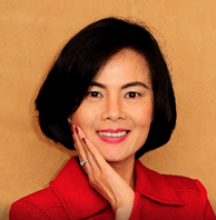MSE 298 Seminar: Organic Semiconductors for Emerging Optoelectronic Devices

Professor
Department of Chemistry and Biochemistry
Director, Center for Polymers and Organic Solids
University of California, Santa Barbara
Abstract: Organic semiconductors (OSCs) are a class of carbon-based materials comprising of alternate single and double bonds (conjugated pi-bonds). They can be synthesized to have band gaps from the UV to the near infrared regions of the electromagnetic spectrum. OSCs are attractive due to their unique properties: light weight, mechanical flexibility, low cost, low-temperature processing and simple fabrication methods such as roll-to-roll coating, spray coating or ink-jet printing into desired size and shape. Such materials are expected to form the basis of new emerging technologies — called the Organic Electronics (OSCs). OSCs have been implemented in commercial products such as displays and lightings and have potential applications in transistors, solar cells, photodetectors, thermoelectrics, ratchets, sensors, neuromorphic computing and bioelectronics. In this talk, I will discuss the development of OSCs processed from green solvents for applications in electrochemical transistors and wearable self-powered devices to monitor heart rate and blood oxygen saturation. I will highlight how chemical structures and processing conditions can be used to tune the materials properties and therefore the device performance. The results from these studies provide design guidelines for new generation of materials for applications in emerging electronics.
Bio: Thuc-Quyen Nguyen is the director of the Center for Polymers and Organic Solids and professor in the Department of Chemistry and Biochemistry at the UC Santa Barbara. Nguyen received her B.S. (1997), M.S. (1998) and Ph.D. (2001) degrees in physical chemistry from UCLA. From 2001-2004, she was a research associate in the Department of Chemistry and the Nanocenter at Columbia University working on molecular self-assembly, nanoscale characterization and devices. She also spent time at the IBM Research Center at T. J. Watson (Yorktown Heights, NY) working with Richard Martel and Phaedon Avouris on molecular electronics. She joined the faculty of the Chemistry and Biochemistry Department at UCSB in 2004.
Her research interests are doping and charge transport in organic semiconductors, bioelectronics and device physics of organic solar cells, ratchets, transistors and photodetectors. She is co-authored over 300 publications and three book chapters that received over 36,000 citations (H-index: 98). Recognition for her research includes 2005 Office of Naval Research Young Investigator Award, 2006 National Science Foundation CAREER Award, 2008 Camille DreyfusTeacher Scholar Award, 2009 Alfred Sloan Research Fellows, 2010 National Science Foundation American Competitiveness and Innovation Fellows, 2015 Alexander von Humboldt Senior Research Award, 2016 Fellow of the Royal Society of Chemistry, 2019 Hall of Fame - Advanced Materials, 2019 Beaufort Visiting Scholar, St John’s College, Cambridge University, 2015-2019 World’s Most Influential Scientific Minds; Top 1% Highly Cited Researchers in Materials Science by Thomson Reuters and Clarivate Analytics, 2019 Fellow of the American Association for the Advancement ofScience (AAAS), 2021 & 2022 Women in Materials Science by Advanced Materials, 2023 Wilhelm Exner Medal from Austria, 2023 Elected Member of the National Academy of Engineering and 2023 de Gennes Prize in Materials Chemistry from the Royal Society of Chemistry.
Share
Related Content
| Attachment | Size |
|---|---|
| 1.05 MB | |
| 786.26 KB |
Upcoming Events
-
EECS Seminar: Less Compute, More Intelligence – Efficient and Autonomous Generative AI and Agents
-
MAE 298: Microscopic Robots that Sense, Act and Compute
-
CBE 298 Seminar: Interface Modification for Electrocatalysis
-
CEE Ph.D. Defense Announcement: Machine Learning and Remote Sensing for Environmental Modeling - From Large-Scale Streamflow Forecasting to Malaria Risk Mapping
-
CBE Special Seminar: Operando Electrochemical Methods at Dynamic Energy Materials Interfaces
